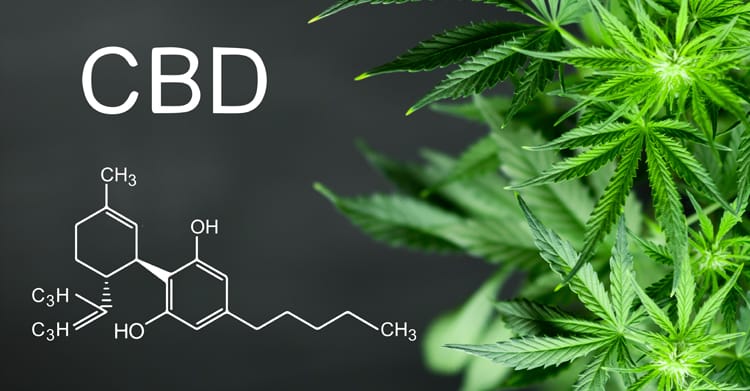
I’ve gotten a lot of questions about CBD oil, so here is a quick rundown on this new type of product that has exploded onto the market:
1. What is CBD? How is it different from THC? How does it work?
Cannabidiol (CBD) is a non-intoxicating, and non-addictive compound derived from Cannabis, a plant in the mint family that grows wild all around the world. Cannabis plants have been used by humans for millennia, both medicinally and for fiber. The CBD products that are available commercially are all derived from Hemp plants, which are distinct from other Cannabis plants (like C. Indica or C. Sativa) in that they do not produce THC, which is the psychoactive component of Cannabis. In states where cannabis products are legal, some CBD oils may also contain THC. CBD is an oil, and it works medicinally by binding to our bodies’ naturally occurring endocannabinoid receptors. Our endocannabinoid system helps regulate a wide variety of body functions, including: sleep, memory, appetite, mood, stress response, immune function, and pain regulation.
2. What are the health benefits associated with CBD?
The health benefits associated with CBD really depend on why the person is taking it. If an individual uses CBD oil and is able to get better sleep and thus feel more rested and present during their day, that is a significant benefit. If another individual is using CBD in order to cut down their dosage of pain medication and minimize their risk of becoming dependent or addicted to opiates, that is also a definite health benefit. There are published studies showing that CBD oil can be used to control seizures in pediatric patients, and it may have a similar benefit in adult patients. As interest in CBD grows, there is more money to fund research trials, and I’m confident that we will see more verified uses of CBD down the road. That being said, always consult with your physician before starting a new medication or supplement.
3. Are there any health risks associated with CBD?
CBD is generally very well tolerated, and has few risks associated with it. Of course, someone may be allergic to it, just like they can be allergic to anything. The cannabis plants that contain THC can increase the risk of psychosis in some users, however we believe that TCH is responsible for those mood disruptions and not CBD. The biggest health risk I see associated with CBD use is it can temporarily inhibit the expression of cytochrome P450, which is one of the ways that our bodies process and break down medications. This means that people who are on medications like anti-coagulants that require stable therapeutic levels, should be very cautious with using CBD, and should not take CBD right before or at the exact same time as their other medications. Grapefruit and grapefruit juice have a very similar effect on how we metabolize medications, and you may remember seeing a warning sticker on your prescription bottles saying to not take with grapefruit juice.
4. What are the various CBD products currently available on the market? Are any more safe than others?
There are all sorts of CBD products commercially available! There are capsules, tinctures, patches, gummies, oils and balms. In general, anything that we are applying topically to our skin, carries less risk of adverse reaction than something we eat, drink or inhale. If an individual is having joint pain, using a topical CBD balm applied directly to that joint can really help. If someone is having difficulty with sleep, then taking CBD orally makes more sense than applying it topically.
5. Who can benefit from using CBD?
I think CBD is worth trying (under primary care physician’s supervision) for individuals who have issues with: difficulty sleeping, chronic or acute pain, anxiety/depression, seizure disorder, weight loss, or chronic inflammatory states.
6. Is it safe and effective?
Overall, CBD is safe and effective for a handful of disorders: epilepsy, chronic pain, insomnia, anxiety, etc. As interest in CBD grows and more research is funded, we will very likely see more uses in the future.
7. Anything else to know?
Not all CBD products are created equal. Take the time to read labels (keep THC less than 0.3% to avoid psychoactive effects) and consult expert opinions. Look for a product that is grown in American, and has the milligram dosage of CBD on the packaging. You may need to try a few different brands, or doses, or delivery methods before you find the CBD product that works for you.
